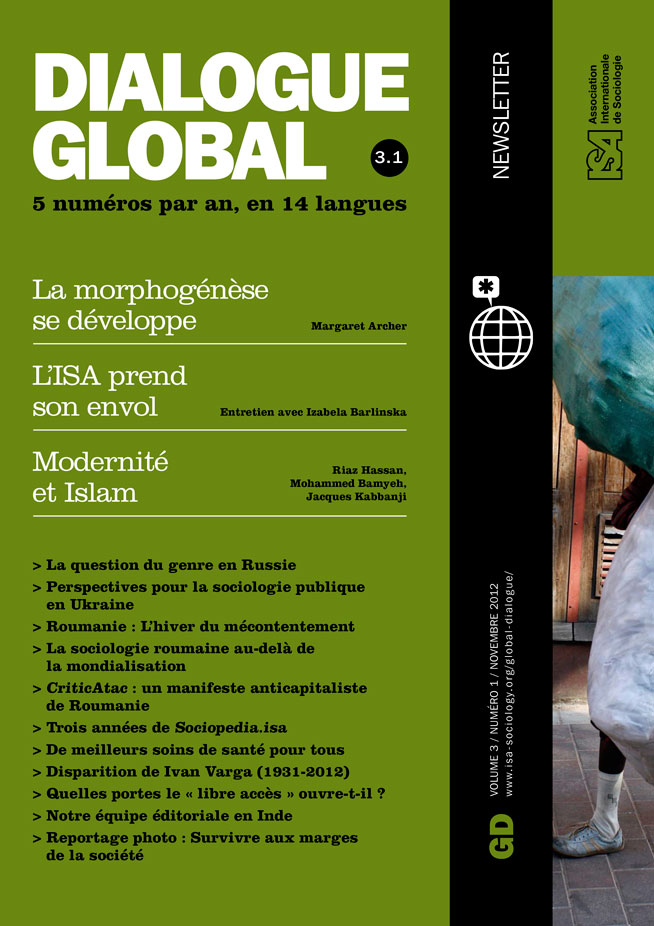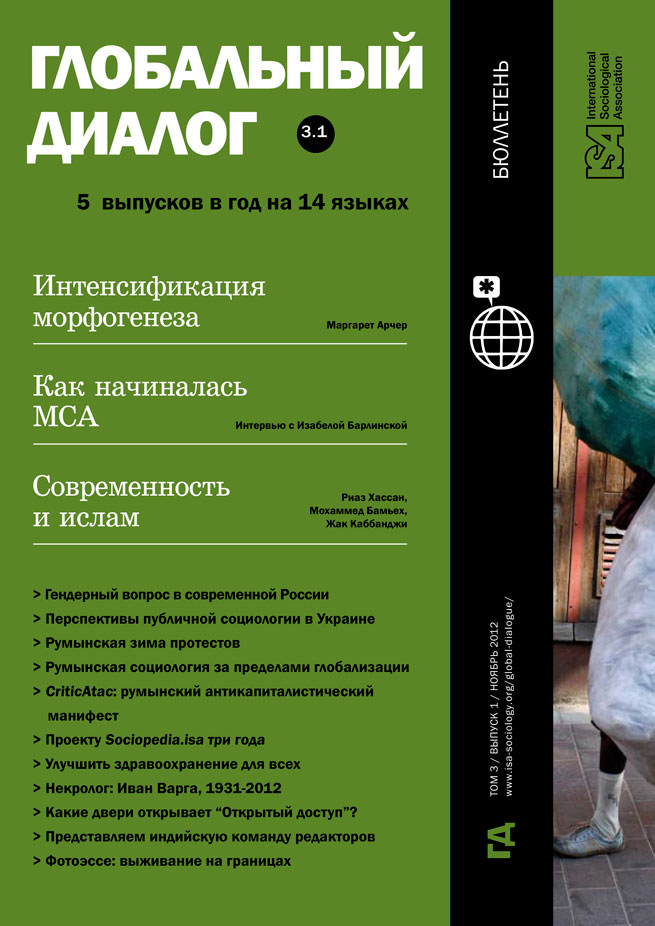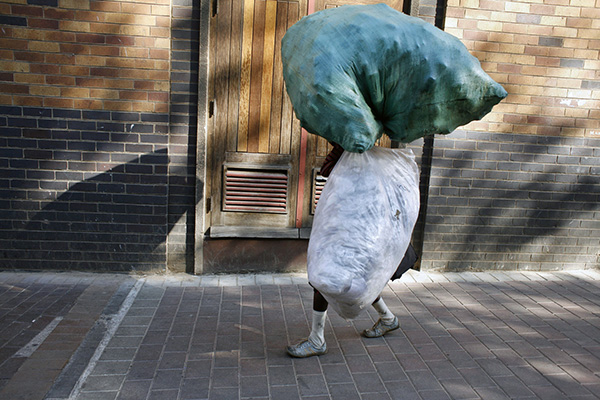Read more about Special Columns
Introducing the Indian Editorial Team
by Ishwar Modi
What Doors does “Open Access” Open?
by Jennifer Platt
October 27, 2012
Many of the jobs that are being created in the inner city of Johannesburg are survivalist jobs, or what have become known as precarious jobs or the informal economy. These include hairdressers and traders working on the street, women and men cleaning taxis at the side of the road, others working from home, or in shebeens (unlicensed taverns), as well as those who pull carts through the streets of the city collecting paper or scrap metal.
We photographed one of these informal waste recyclers, an elderly black woman on her way to a recycling center. At first she seemed like an apparition as we could not identify her amongst the load she was carrying on her back. But if you look carefully you will see parts of her body overwhelmed by the bags of recycling waste. She is not a helpless victim; she is a productive worker. She spends ten hours a day collecting paper and then carrying it on her back through the streets of Johannesburg to sell to the buy-back center. It is not a job in the conventional sense; it is a livelihood strategy. She not only creates value by recycling paper that is bought by a large multinational company; she is also cleaning the streets. It is a “green” job but she earns on average only USD5 a day.
What characterizes these informal workers is that they are self-employed. They have successfully captured an economic space in the city, where they can engage in economic activities in ways very different from traditional employment. The emergence of these informal activities presented sociology with a puzzle. It was assumed in the 1950s and 60s, following modernization theory’s teleological view, that dynamic industries would absorb the rapid flow of people to the cities as in nineteenth century Europe. This, however, has not happened. Instead, the urban populations of the developing world have grown dramatically, surviving on small-scale informal economic activities rather than formal employment. In the photograph she is invisible, but she is part of a growing army of precarious workers across the globe.
Alexia Webster, Photographer
Edward Webster, University of Witwatersrand, South Africa, and former President of the Research Committee on Labor Movements (RC44)
This issue is not available yet in this language.
Request to be notified when the issue is available in your language.
If you prefer, you can access previous issues available in your language:














